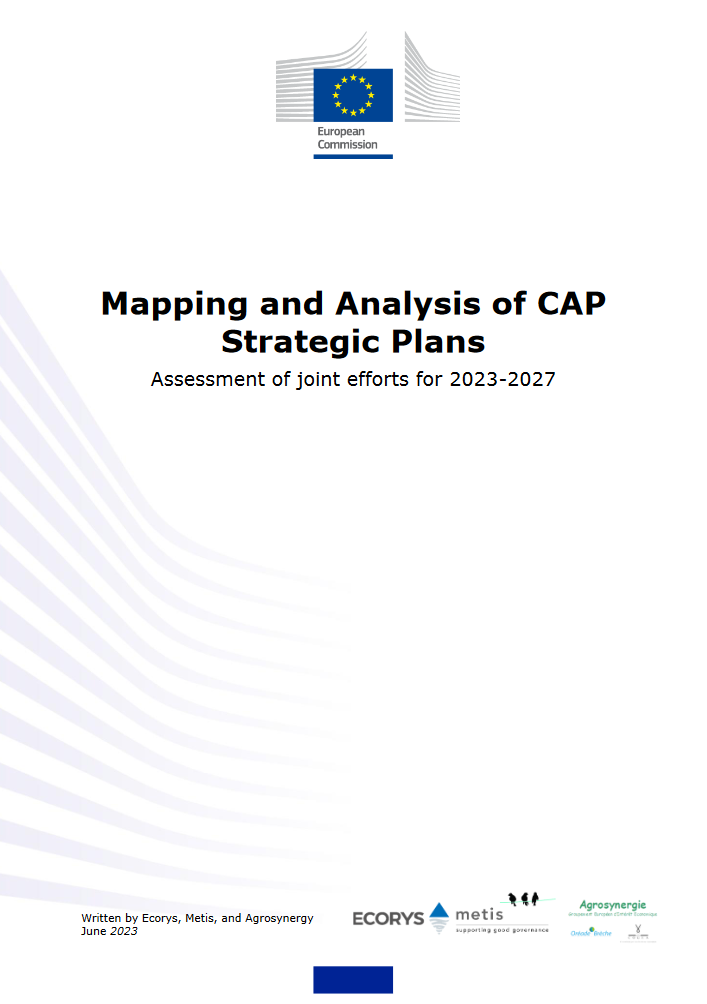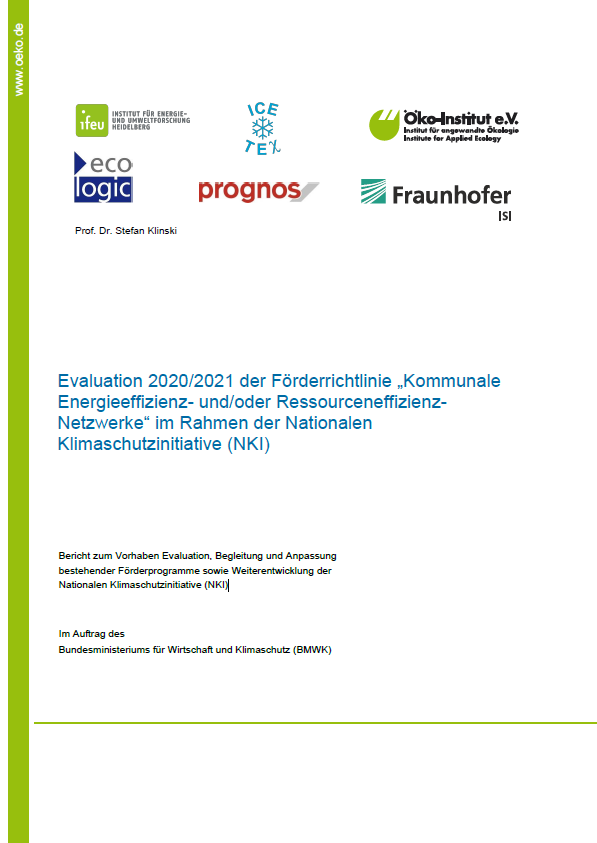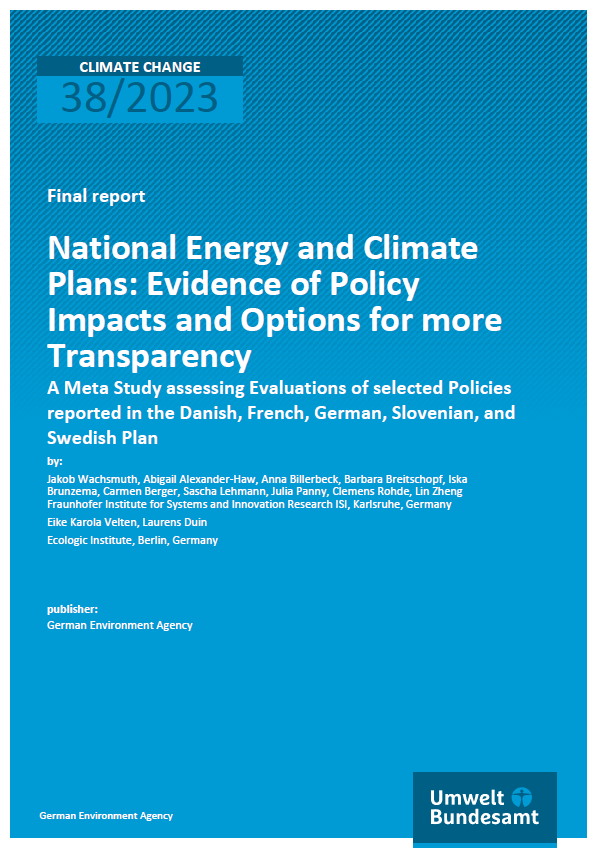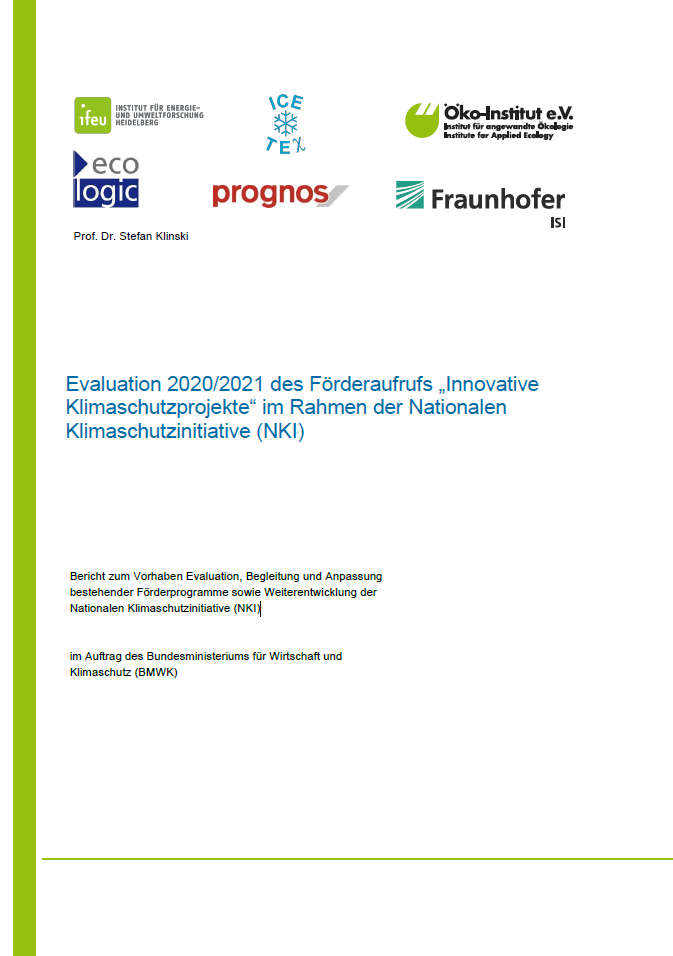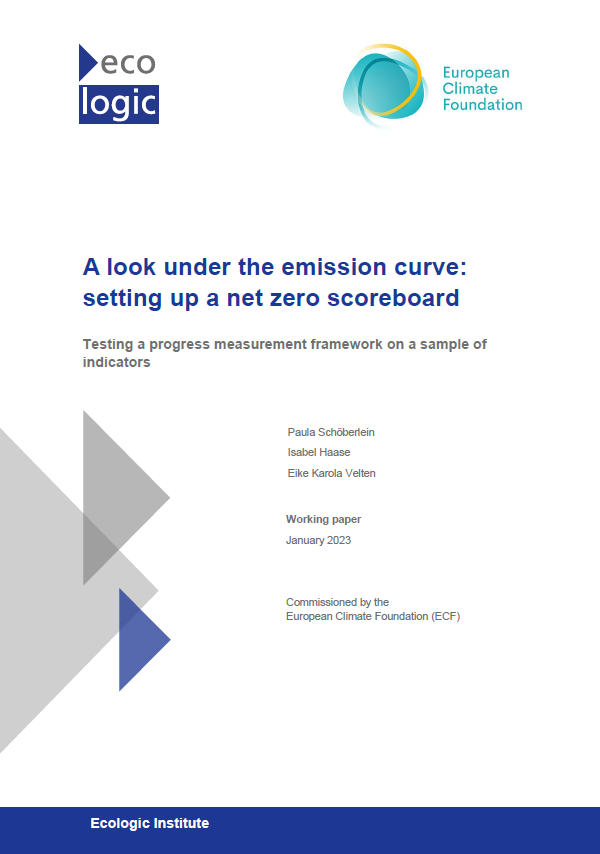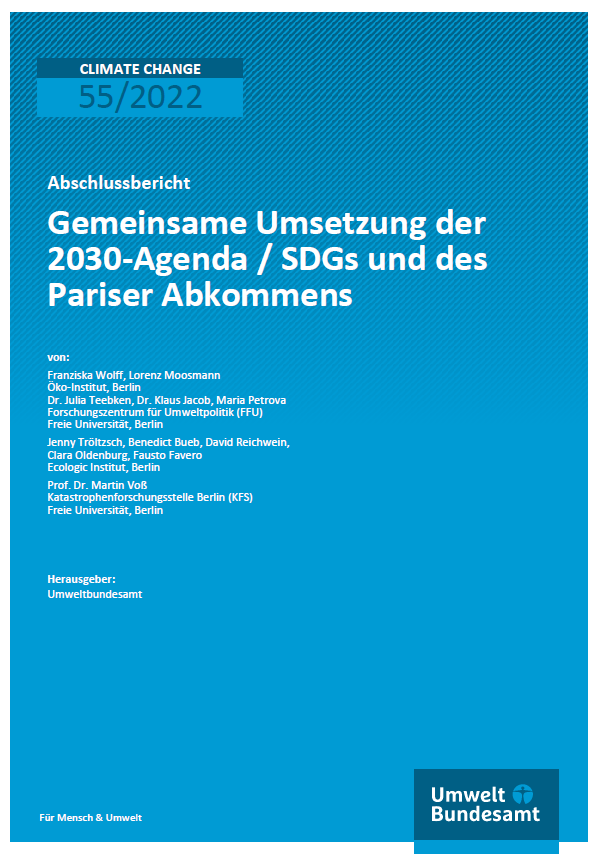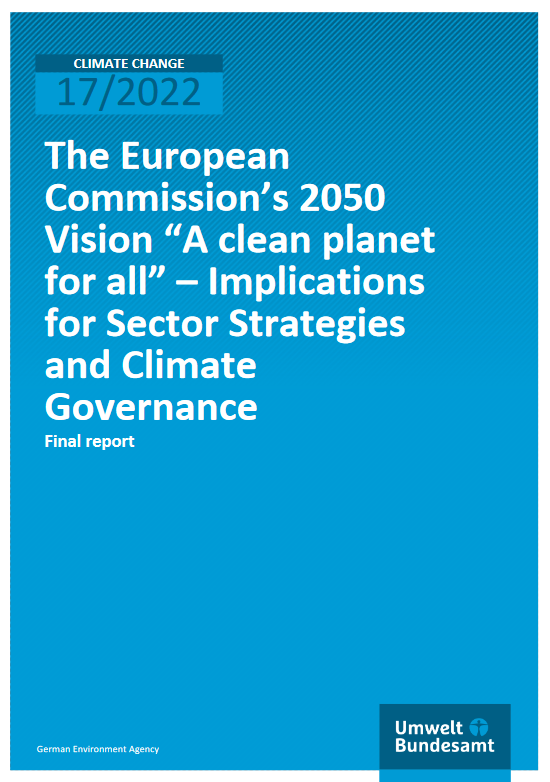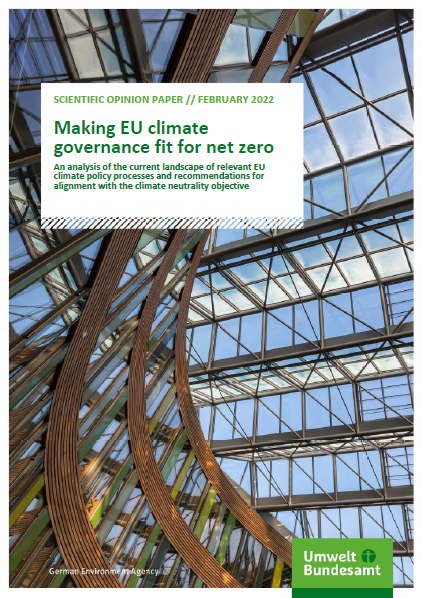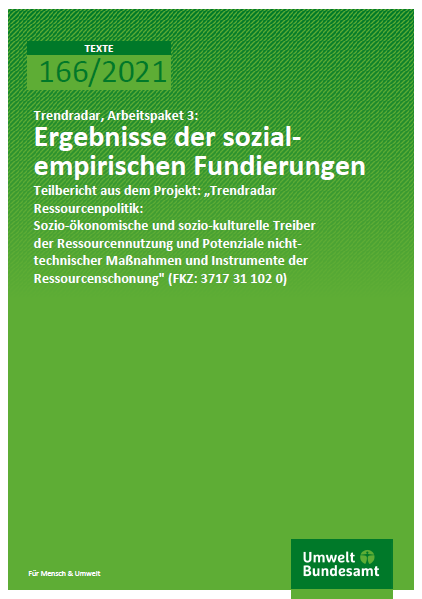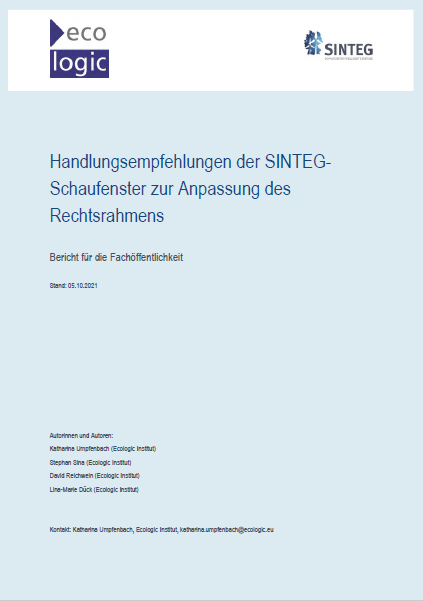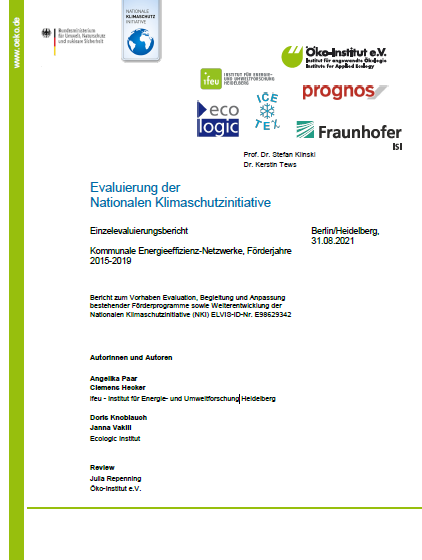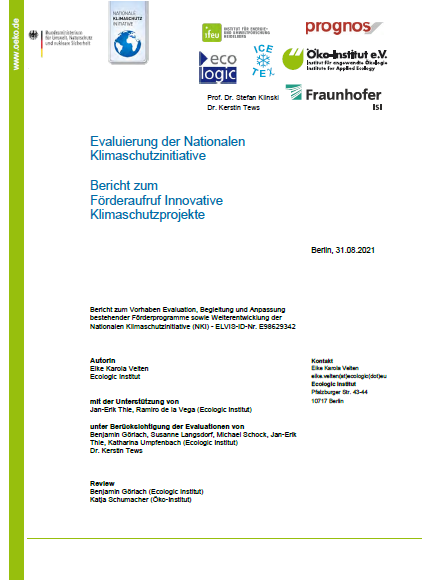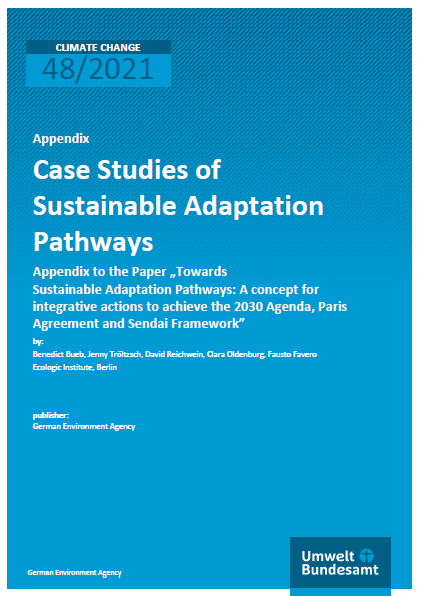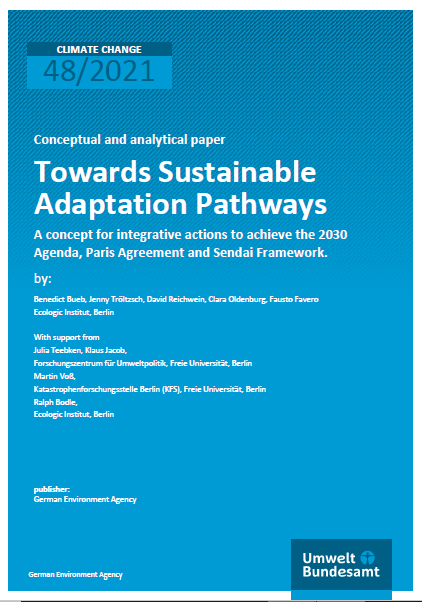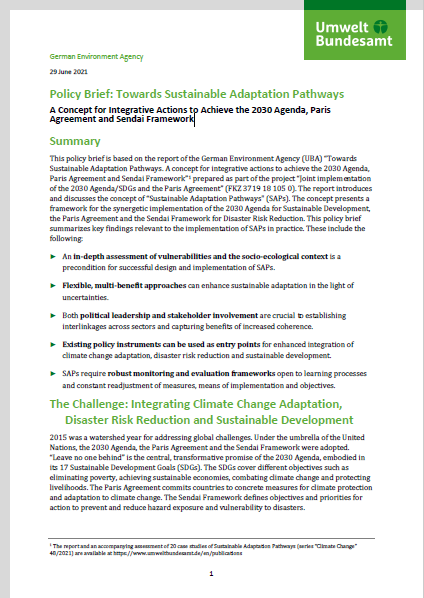Publication:Report
Publication:Report
Kurs Klimagerechtigkeit
Wie Brot für die Welt die Bedürfnisse der ärmsten und verletzlichsten Bevölkerungsgruppen in der internationalen Klimapolitik stärkt
Year
Read morePublication:Report
Mapping and Analysis of CAP Strategic Plans
Assessment of joint efforts for 2023-2027
Year
Read morePublication:Report
Evaluation "Masterplan 100% Klimaschutz" der Nationalen Klimaschutzinitiative
Masterplan municipalities initiate transformation processes.
Year
Read morePublication:Report
Publication:Report
Publication:Report
Publication:Document
A Look Under the Emission Curve: Setting up a Net Zero Scoreboard
Testing a progress measurement framework on a sample of indicators
Year
Read morePublication:Report
Gemeinsame Umsetzung der 2030-Agenda / SDGs und des Pariser Abkommens
Abschlussbericht
Year
Read morePublication:Report
The European Commission's 2050 Vision "A clean planet for all"
Implications for Sector Strategies and Climate Governance
Year
Read morePublication:Document
Publication:Report
Ergebnisse der sozial-empirischen Fundierungen
Teilbericht aus dem Projekt: "Trendradar Ressourcenpolitik"
Year
Read morePublication:Report
Handlungsempfehlungen der SINTEG-Schaufenster zur Anpassung des Rechtsrahmens
Bericht für die Fachöffentlichkeit
Year
Read morePublication:Report
Kommunale Energieeffizienz-Netzwerke, Förderjahre 2015-2019
Evaluation of the National Climate Initiative – Individual Evaluation Report
Year
Read morePublication:Report
Bericht zum Förderaufruf Innovative Klimaschutzprojekte
Evaluierung der Nationalen Klimaschutzinitiative
Year
Read morePublication:Case Study
Publication:Report
Towards Sustainable Adaptation Pathways
A concept for integrative actions to achieve the 2030 Agenda, Paris Agreement and Sendai Framework
Year
Read morePublication:Policy Brief
Policy Brief: Towards Sustainable Adaptation Pathways
A Concept for Integrative Actions to Achieve the 2030 Agenda, Paris Agreement and Sendai Framework
Year
Read more